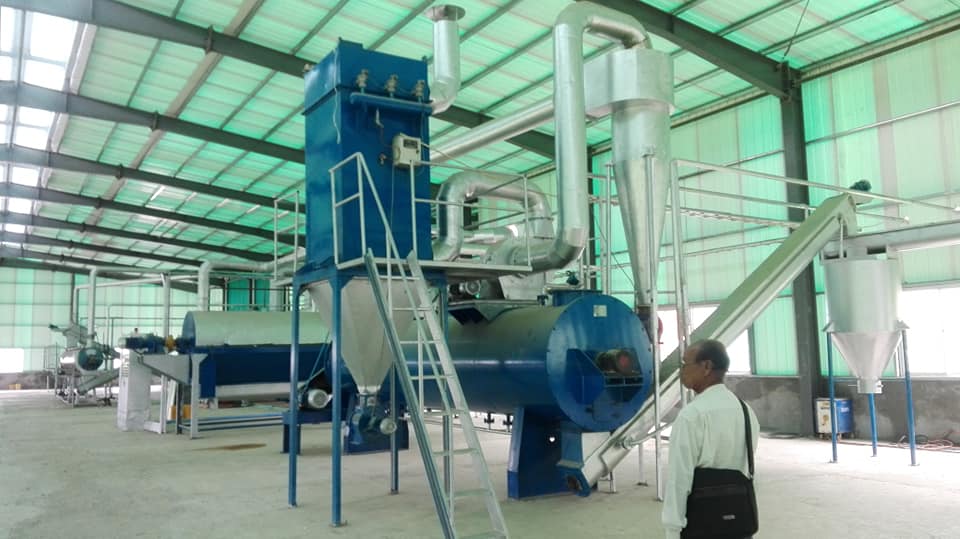YANGON—Locals in southern Rakhine State’s rural Kyaukphyu Township are concerned over the environmental impacts of a nearby, coal-powered fish cracker factory that appears almost ready to begin operating.
The project, next to Kin Myauk Village, is 35 kilometers (22 miles) south of downtown Kyaukphyu and close to the newly-proposed, Chinese-backed Sea View Beach project on Ramree Island.
Kyaukphyu is internationally known as the site of a Chinese deep-seaport project worth billions of dollars and a special economic zone.
Kin Myauk Village General Administrative Official U Than Kyaw Htay said that construction started in 2018 and power generation is ready to begin.
Rakhine State lawmaker U Phoe San, of the Arakan National Party, said he and a group of government officials from the township’s environmental conservation department unexpectedly found the factory on Tuesday while inspecting progress on the construction of the Kin Chaung Bridge, which will link Ramree Island and Kyaukphyu Township.
U Phoe San said he and inspectors found coal by the ton, an ultra-high voltage coal generator and several Chinese employees, who told them the factory’s owners planned to buy local fish and seafood products to process crackers.
Also found by inspectors were structures that appeared to be factory worker housing, piping systems and a small jetty.

“We have learned the factory is planned to run on coal. Who is going to take accountability for the negative impacts of a coal-powered factory?” U Phoe San said on Facebook.
He said he believes the pipes are likely for wastewater, and that they lead to a nearby river bank.
The National League for Democracy (NLD)-appointed Rakhine cabinet did not consult with the parliament about the factory, he said.
“Although this village is in my constituency, I was not told about the project. We just found it once it had already been completed,” U Phoe San said.
Meanwhile, NLD-appointed Rakhine State Chief Minister U Nyi Pu visited the project site last month.
Rakhine State Planning and Finance Minister U Kyaw Aye Thein told The Irrawaddy he knew nothing about the site and declined to say whether or not the project had received Union-level approval or approval from his cabinet.
“I am not familiar with that issue,” said U Kyaw Aye Thein.
The factory’s manager, Ko Sithu Phyo, said the factory is owned by the Yati Company and that three Chinese technicians are staying at the factory while installing piping and an electrical system.
Ko Sithu Phyo told The Irrawaddy some of the coal has been imported from elsewhere in Myanmar. He said the company decided to run the factory on coal because Kin Myauk Village has no access to the national electrical grid.
Kyaukphyu is a region rich in energy resources, transporting millions of tons of gas and crude oil to Kunming, in China, annually.
The company has said it has halted plans at the moment because of local opposition, but because the factory is already built and close to running, widespread skepticism remains. Ko Sithu Phyo declined to provide the horsepower or voltage capacity of the generator, the grade of coal on site or a potential alternative energy source.
According to U Phoe San, the company had initially built several structures on two acres of land.
He said locals have raised complaints with him that the factory owner has also bought land in Lay Taung Model Village for other business projects as well.
If the factory proceeds according to current plans, it will be the first and only coal-powered factory in Rakhine State.

















